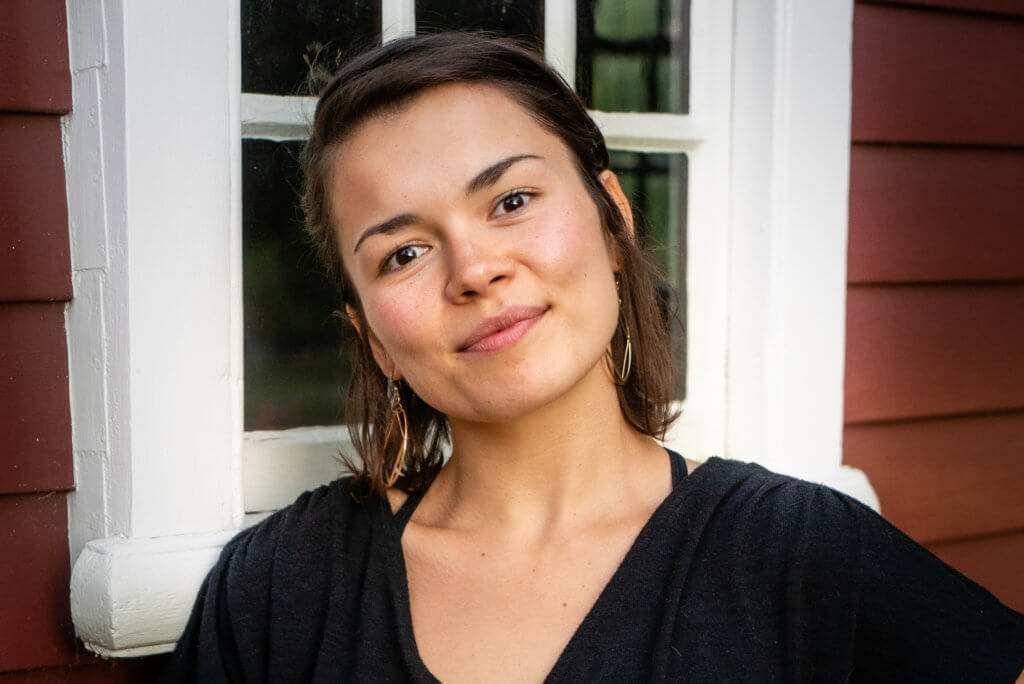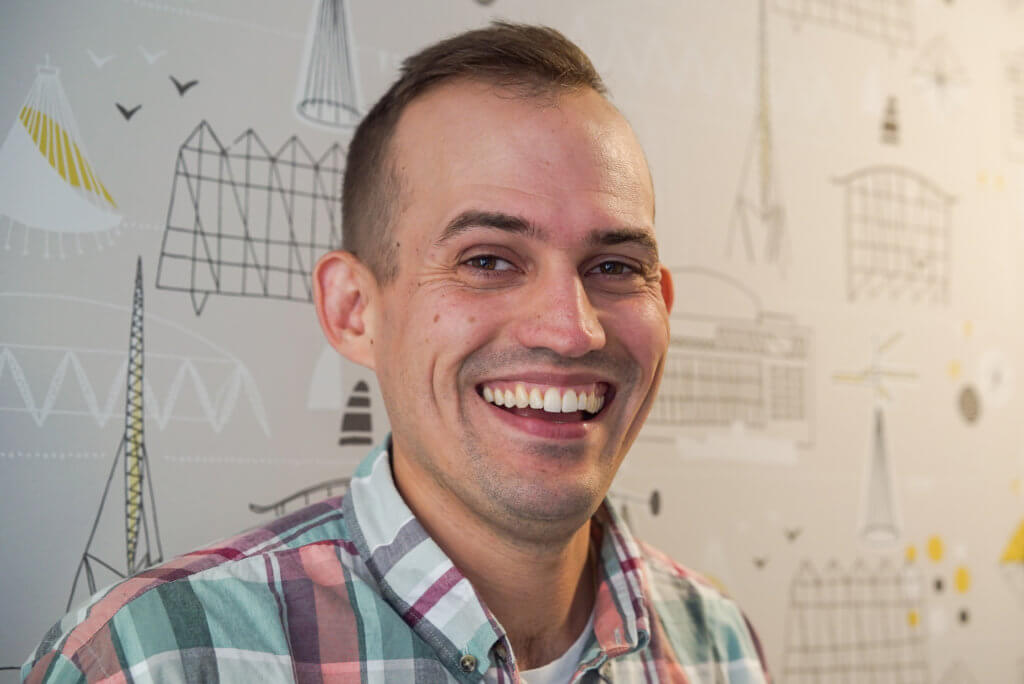Episode
Highlights
Dreaming of the U.S.
Omar had dreamt of the U.S. each night in Ghana, where his walls were made out of cardboard and tarp. He dreamed of what he calls a “Sugar Candy Mountain”, a place where rivers flow with honey and milk, and all the houses are like 5 star hotel suites.

Omar and his two kids | Photo: Ana González
BORROWING BOOKS
“…I got a library card at Knight Memorial Library on Elmwood. And I started going there to borrow books. Mostly biographies or autobiographies that to do with someone overcoming some sort of difficult life experience. The point was that I wanted to see how people overcame hardship. But also for me to just learn from, to know if people can survive, I can also survive.”
—OMAR

Omar and interpreter Kamal Elias at the Refugee Dream Center | Photo: Ana González

Alex Nunes with a group of refugees at the Refugee Dream Center | Photo: Ana González
ON TRAUMA
“There is no refugee that does not have any form of trauma. Because that is actually why you are a refugee. Because an event happened that caused mental and psychological distress. You know, you are forced out of your home. Even if you are not tortured or witnessed murder, that alone is traumatizing.”
—OMAR

Refugee Dream Center Logo | Photo: Ana González
CHOOSING A NAME
“… I wanted to create inspiration for refugees but also inspire Americans to join the efforts to give refugees an opportunity to regain the humanity they might have lost because of the extreme sufferings they went through. The America I know, two things are there: possibilities and opportunities. And I want refugees to dream to obtain those. And I know it is possible.”
—OMAR

Photo: Ana González

Photo: Ana González
HOPING FOR A BETTER LIFE
“We arrived here as a family of 6 people. My daughter had already completed high school. Right now, she’s at URI, she’s doing criminal justice. And by God’s grace, she may graduate next year. The world is full of trouble. Especially when you look at refugees in refugee camps, life is not easy. And once we come here, we all hope for a better life. America is now my home. Rhode Island is my home. Providence is my home.”
—AHAD KAYEMBE, FELLOW REFUGEE

Ahad and Isabel Kayembe, 2 Congolese refugees who work with Omar | Photo: Ana González


